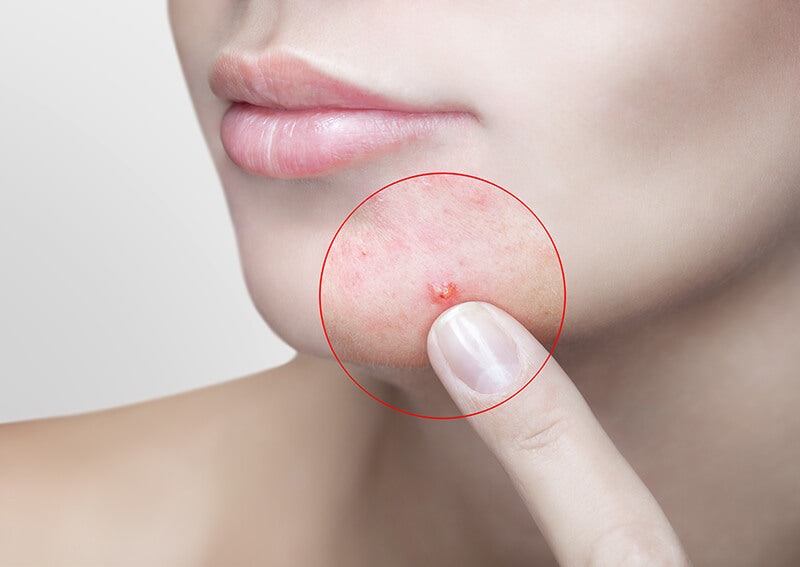Acne is a condition that causes great discomfort at any age, but it can be even more frustrating during adulthood. Around 40% of adults suffer from this issue and women are more likely to have late acne due to hormonal changes. In this post, we will explain the causes and the best ways to prevent and treat acne-prone skin.
There are two types of adult acne: persistent and late acne. The persistent acne is when pimples remain beyond adolescence and are usually formed on the lower part of the face, especially around the mouth, chin, and along the jawline. The second type has a late onset and can affect even those who have never suffered from the condition in youth. It can be just as severe and often affects the chest and back as well as the face.

Causes
The acne in adulthood, although similar to the condition in adolescence, is triggered by different aspects. Hormonal changes are one of the biggest causes of acne in women, but not the only component.
Late acne-triggering factors may be heredity, stress, ultraviolet light exposure, obesity, and increased levels of cholesterol. It may also be a symptom of other conditions or diseases. Therefore it is important to investigate each case.
Another element can be the skin and hair products you use. Oily sunscreens, hair creams, and some cosmetics can promote a type of acne called cosmetic acne. If you suffer from acne-prone skin, make sure to buy only oil-free facial products.
How to Prevent
The best strategy to prevent adult acne is to have a healthy lifestyle and have a care routine that prioritizes cleansing.

The recommendation is to wash your face at least twice a day (morning and evening) with a mild soap or facial cleanser, suitable for your skin, preferably with warm or cold water. When drying the skin, use a clean, soft towel to avoid transmitting any type of bacteria. Only use sunscreens suitable for oily skin and light-weight moisturizers.
Beautiful skin also depends on what we eat. Our skin relies on several nutrients to keep its glow and health. The excessive consumption of foods with too much sugar or fat can aggravate the picture of acne. Vitamin A is a great ally for those who have oily and acne-prone skin, so it's good to increase the consumption of vegetables, carrots, and pumpkin.
How to Treat
As with acne vulgaris, the treatment of adult acne is usually done with the use of topical or oral medications. If some other disease associated with the problem is diagnosed, other therapies can be necessary.
Treatment options include:
• Remedies containing sodium sulfacetamide and sulfur;
• Topical retinoids, which are derivatives of vitamin A;
• Moisturizers and creams with acne-fighting ingredients such as salicylic acid.
Avoid self-medication and consult a dermatologist. Good luck and take care!



Leave a comment
This site is protected by hCaptcha and the hCaptcha Privacy Policy and Terms of Service apply.